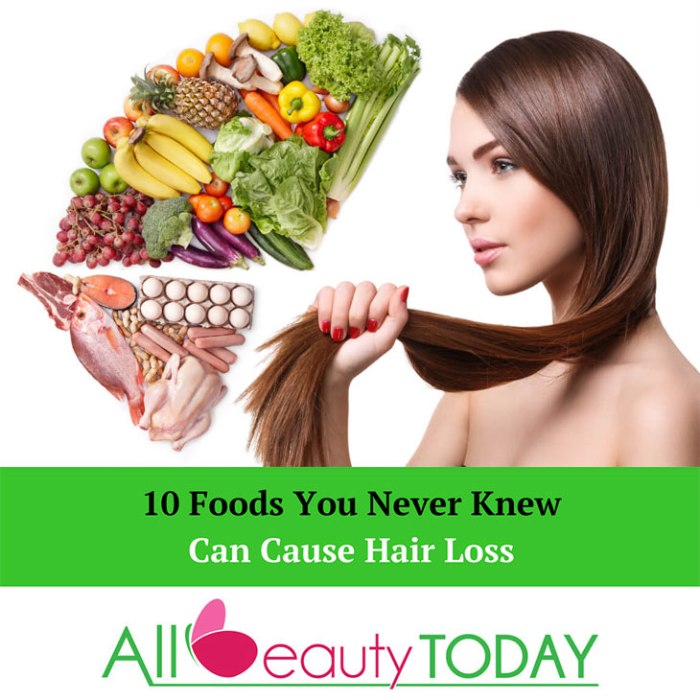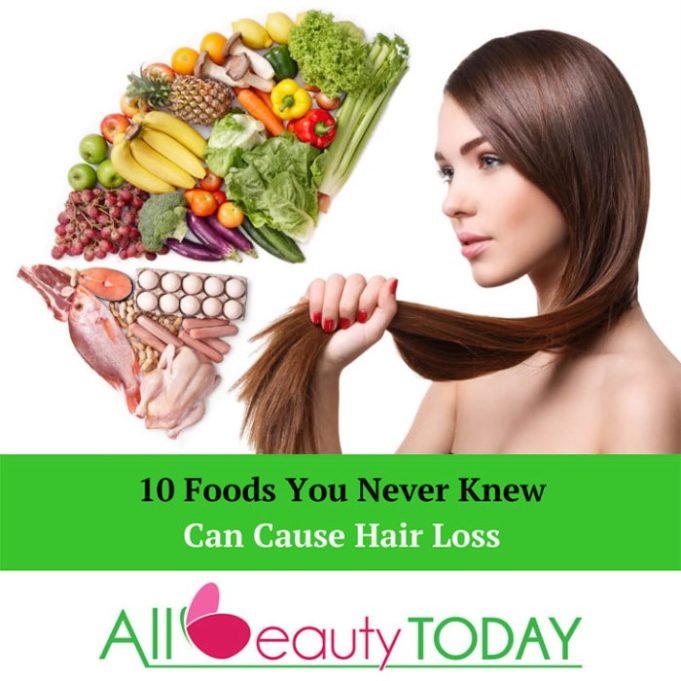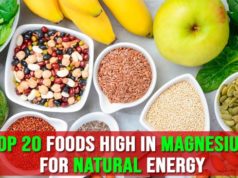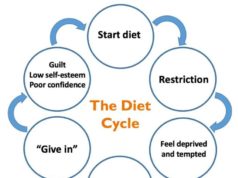Can diet cause hair loss? The answer is a resounding yes, and understanding the connection between what we eat and the health of our hair is crucial. Hair loss, a common concern for many, can be triggered by a variety of factors, and diet plays a significant role. From nutrient deficiencies to specific dietary choices, our eating habits can have a profound impact on the vitality of our locks.
Our hair thrives on a balanced intake of essential nutrients, and a lack of these vital components can lead to thinning, breakage, and even alopecia. This article delves into the intricate relationship between diet and hair loss, exploring the specific nutrients that promote hair growth, the diets that may contribute to hair loss, and strategies for incorporating hair-healthy foods into our daily lives.
The Connection Between Diet and Hair Loss: Can Diet Cause Hair Loss

While genetics play a significant role in hair loss, dietary factors can also contribute to this common concern. Nutritional deficiencies can impact hair growth, leading to thinning, shedding, and even alopecia. Understanding the link between diet and hair loss can empower individuals to make informed choices to promote healthy hair.
Nutritional Deficiencies and Hair Loss
Hair follicles require a steady supply of essential nutrients for optimal growth. When the body lacks these nutrients, hair growth can be compromised, leading to thinning or shedding.
Essential Nutrients for Healthy Hair Growth
Several essential nutrients are vital for healthy hair growth, including:
- Protein: Protein is the building block of hair, and a deficiency can lead to hair thinning and shedding.
- Iron: Iron is crucial for carrying oxygen to hair follicles, supporting healthy growth.
- Zinc: Zinc helps in cell division and repair, contributing to hair follicle function.
- Biotin: Biotin, a B vitamin, is essential for healthy hair, skin, and nails.
- Vitamin D: Vitamin D plays a role in hair follicle growth and can influence hair loss.
Diets That Can Contribute to Hair Loss
Certain dietary patterns can contribute to hair loss by limiting the intake of essential nutrients:
- Restrictive Diets: Diets that severely restrict calories or specific food groups, such as vegan or vegetarian diets, may lack essential nutrients for hair growth if not carefully planned.
- Low-Protein Diets: Diets low in protein can lead to hair thinning and shedding as protein is crucial for hair growth.
- Diets Deficient in Iron: Iron deficiency anemia can cause hair loss due to insufficient oxygen delivery to hair follicles.
- Diets High in Processed Foods: Diets rich in processed foods are often low in essential nutrients and may contribute to hair loss.
Specific Dietary Factors and Hair Loss
While overall nutritional deficiencies can contribute to hair loss, certain specific dietary factors play a more direct role. Understanding these factors can help individuals identify potential nutritional gaps and make informed dietary choices to support healthy hair growth.
Protein Deficiency
Protein is a crucial building block for hair, as it’s composed primarily of keratin, a fibrous protein. When the body doesn’t receive enough protein, it prioritizes essential functions like organ health and immune system function, leaving hair growth to suffer. This can lead to thinner, weaker hair, and even hair loss.
Iron Deficiency
Iron is a vital component of hemoglobin, a protein in red blood cells that carries oxygen throughout the body, including the hair follicles. Iron deficiency, also known as anemia, can disrupt oxygen supply to hair follicles, leading to hair shedding and thinning. This type of hair loss is often characterized by diffuse thinning, affecting the entire scalp.
Zinc’s Role in Hair Health
Zinc is a mineral that plays a crucial role in various aspects of hair health, including cell growth and repair. Zinc deficiency can disrupt hair follicle function, leading to hair loss.
- Zinc helps regulate the production of sebum, an oily substance that lubricates the scalp and promotes hair growth.
- It supports the activity of enzymes involved in hair follicle development and function.
- Zinc deficiency can lead to alopecia, a general term for hair loss, and can also contribute to other hair problems like brittle hair and hair breakage.
Vitamin D Deficiency
Vitamin D, often referred to as the “sunshine vitamin,” plays a role in hair growth by regulating the hair growth cycle. Studies have shown that vitamin D deficiency can be associated with alopecia areata, an autoimmune condition that causes patchy hair loss.
Biotin Deficiency
Biotin, a B vitamin, is crucial for various metabolic processes, including the production of keratin, the protein that makes up hair. Biotin deficiency can lead to hair loss, as well as brittle hair and nail problems. While biotin supplements are often marketed for hair growth, it’s important to note that biotin deficiency is relatively rare, and supplementing without a confirmed deficiency may not be necessary.
Diets Associated with Hair Loss
While a balanced diet is crucial for overall health and hair growth, certain dietary patterns can contribute to hair loss. These diets often lack essential nutrients that support hair follicles, leading to weakened strands and shedding.
Common Diets and Their Impact on Hair Health
Here’s a table outlining common diets and their potential impact on hair health:
| Diet | Potential Impact on Hair Health |
|—|—|
| Very Low-Calorie Diets (VLCDs) | VLCDs can lead to deficiencies in protein, iron, zinc, and biotin, all crucial for hair growth. This can result in telogen effluvium, a condition where hair enters the resting phase prematurely. |
| Vegan Diets | While vegan diets can be healthy, they may lack certain nutrients essential for hair growth, such as iron, zinc, and vitamin B12. It’s important to ensure adequate intake of these nutrients through fortified foods or supplements. |
| Ketogenic Diet | The keto diet restricts carbohydrates, which can lead to deficiencies in essential nutrients like biotin and zinc, potentially impacting hair health. |
| Paleo Diet | The paleo diet emphasizes whole foods but may be low in iron, zinc, and other hair-supporting nutrients, particularly if processed foods are restricted. |
| Intermittent Fasting | Intermittent fasting can be beneficial for overall health but may affect hair growth if not done properly. It’s crucial to ensure adequate calorie intake and nutrient balance during eating periods. |
Nutritional Content of Different Diets and Their Relevance to Hair Growth
The following table compares the nutritional content of different diets and their relevance to hair growth:
| Diet | Protein | Iron | Zinc | Biotin | Other Hair-Supporting Nutrients |
|—|—|—|—|—|—|
| Mediterranean Diet | High | High | Moderate | Moderate | Rich in antioxidants, omega-3 fatty acids, and vitamins A, C, and E. |
| DASH Diet | Moderate | High | Moderate | Moderate | Rich in fruits, vegetables, and whole grains, providing essential vitamins and minerals for hair health. |
| Vegetarian Diet | Moderate | High | Moderate | Moderate | Can provide adequate nutrients for hair growth if well-planned and includes fortified foods or supplements. |
| Vegan Diet | Moderate | High | Moderate | Moderate | Requires careful planning to ensure adequate intake of iron, zinc, and vitamin B12. |
| Ketogenic Diet | High | Moderate | Moderate | Moderate | May be deficient in biotin and zinc, which are essential for hair growth. |
Other Factors Contributing to Hair Loss
While diet plays a crucial role in hair health, it’s not the sole factor determining hair loss. Several other elements can contribute to thinning hair, and understanding these factors is essential for effective management.
Genetics
Genetics plays a significant role in hair loss, particularly in cases of androgenetic alopecia, commonly known as male-pattern baldness or female-pattern baldness. This type of hair loss is hereditary and results from a combination of genetic predisposition and hormonal influences. If your family history includes hair loss, you are more likely to experience it yourself.
Stress
Stress can trigger hair loss by affecting the hair growth cycle. When the body is under prolonged stress, it produces hormones that can disrupt the normal growth phase of hair follicles, leading to shedding. This type of hair loss is often temporary and reversible once the stressor is addressed.
Hormonal Imbalances, Can diet cause hair loss
Hormonal fluctuations can also contribute to hair loss. For example, women may experience hair shedding after childbirth or during menopause due to changes in estrogen levels. Thyroid disorders, polycystic ovary syndrome (PCOS), and other hormonal imbalances can also affect hair growth.
Addressing Hair Loss Through Dietary Changes
While dietary changes alone may not completely reverse hair loss, they can play a significant role in promoting healthy hair growth. By incorporating nutrient-rich foods into your diet, you can provide your body with the building blocks it needs to support hair follicle function.
Dietary Modifications to Promote Hair Growth
A balanced diet that includes essential vitamins, minerals, and protein is crucial for healthy hair growth. Here are some dietary modifications you can consider:
- Increase Protein Intake: Protein is the building block of hair, so ensure you consume adequate amounts. Good sources include lean meats, poultry, fish, eggs, beans, lentils, and tofu.
- Consume Biotin-Rich Foods: Biotin is a B vitamin essential for hair growth. Include foods like eggs, almonds, sweet potatoes, and salmon in your diet.
- Get Enough Iron: Iron deficiency can lead to hair loss. Include iron-rich foods like red meat, spinach, lentils, and beans in your diet.
- Include Zinc-Rich Foods: Zinc is essential for hair follicle health. Good sources include oysters, beef, nuts, and beans.
- Boost Vitamin D Levels: Vitamin D deficiency has been linked to hair loss. Increase your intake through fatty fish, egg yolks, and fortified foods.
- Consume Omega-3 Fatty Acids: Omega-3 fatty acids promote scalp health and hair growth. Include foods like salmon, tuna, walnuts, and flaxseeds in your diet.
Sample Meal Plan
Here’s a sample meal plan that incorporates hair-healthy foods:
Breakfast
- Scrambled eggs with spinach and a slice of whole-wheat toast
Lunch
- Salmon salad with mixed greens, avocado, and a drizzle of olive oil
Dinner
- Chicken stir-fry with brown rice and broccoli
Snacks
- Handful of almonds
- Greek yogurt with berries
Tips for Incorporating Nutrient-Rich Foods
- Plan your meals ahead of time: This will help you make healthier choices and avoid unhealthy temptations.
- Cook more meals at home: This gives you more control over the ingredients and portion sizes.
- Read food labels: Pay attention to the nutritional content of the foods you buy.
- Choose whole, unprocessed foods: These foods are generally more nutrient-dense and less likely to contribute to hair loss.
- Drink plenty of water: Staying hydrated is essential for overall health, including hair health.
Last Point
In conclusion, understanding the link between diet and hair loss empowers us to take proactive steps towards maintaining healthy, vibrant hair. By ensuring adequate intake of essential nutrients, avoiding restrictive diets that may deplete hair-supporting vitamins and minerals, and seeking professional guidance when necessary, we can address hair loss concerns and promote healthy hair growth. Remember, a balanced and nutritious diet is a cornerstone of overall well-being, including the health of our hair.
Question Bank
Can stress cause hair loss?
Yes, stress can trigger a type of hair loss called telogen effluvium. This happens when stress causes hair follicles to enter the resting phase prematurely, leading to increased shedding a few months later.
Is there a specific diet that can prevent hair loss?
While no single diet guarantees hair loss prevention, a balanced diet rich in protein, iron, zinc, biotin, and vitamin D can support healthy hair growth.
How long does it take for dietary changes to impact hair growth?
It typically takes several months to see noticeable improvements in hair growth after making dietary changes. Patience is key, as hair growth is a gradual process.
























